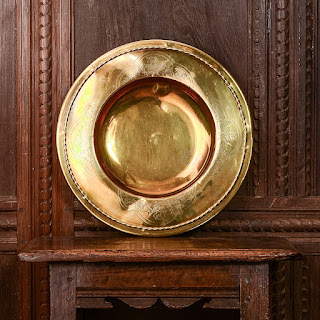Cranmerian Holy Communion during Advent: heeding with Israel the prophetic call to justice and righteousness
Learn to do well; seek judgment, relieve the oppressed, judge the fatherless, plead for the widow (Isaiah 1:17).
In Advent the Church stands alongside Israel, hearing the prophet Isaiah's call to justice and righteousness. The just ordering of social relationships is fundamental to the prophet's call:
Woe unto them that decree unrighteous decrees, and that write grievousness which they have prescribed; To turn aside the needy from judgment, and to take away the right from the poor of my people, that widows may be their prey, and that they may rob the fatherless (Isaiah 10:2).
In this short series reflecting on how aspects of Cranmerian Holy Communion have a particular meaning and resonance during Advent, we turn to the exhortation addressed to those who come to receive the Sacrament, "Ye that do truly". It is another unchanging feature of what I have loosely termed the Cranmerian rites. There are, of course, not insignificant differences between, on the one hand, 1662 and Ireland 1926, and, on the other, PECUSA 1928 and Scotland 1929. Despite these differences, however, crucial shared texts remain, giving a unity to these rites, perhaps more apparent to those who pray the rites than those who analyze them. Amongst these shared texts is this exhortation.
A defining feature of the exhortation is its call to those approaching the holy Sacrament: "in love and charity with your neighbours". This was intimately related to a Reformed understanding of the offertory in the Holy Communion of 1552 and 1559, the focus not on the preparation of the bread and wine but, rather, communicants being addressed by the parson, "earnestly exhort[ing] them to remember the poore". This continued in 1662, with describing the purpose of the offertory: "receive the Alms for the Poor". As Philip Anderson has stated in an excellent article, this reflected a distinctively Reformed emphasis:
The consecrated sacramental bread, the traditional symbol of Christ’s presence, had been usurped and replaced by the parochial alms chest and its lay collectors, symbols of a Reformed understanding of the Spirit at work in the Church, neighbourly charity interpreted as a communal spiritual sacrifice.
The influence of Zurich was also seen in the English Reformation's rejection of images. This too was bound up with the call to be "in love and charity with your neighbours". The Homily against Peril of Idolatry was explicit on this point:
whilst the dumb and dead idols stand thus decked and clothed, contrary to God's law and commandment, the poor Christian people, the lively images of God, commended to us so tenderly by our Saviour Christ as most dear to him, stand naked, shivering for cold.
The giving of alms to the poor is, we should note, an act of redistributing wealth and resources. It is an act ordered towards a more just commonwealth. It is a recognition that the community and neighbours, that wealth and capital, have weighty - indeed, divinely ordained - moral responsibilities to serve the poor.
In the weeks of Advent, then, as the words of the prophet Isaiah are heard, challenging the injustices we casually tolerate and the disordered social relationships we routinely accept as supposedly natural and inevitable, the Cranmerian call to approach the holy Table "in love and charity with your neighbours" echoes the prophet's call to repentance and a reordering of those social and communal relationships.
At the beginning of Advent, the words of the prophet ring out, addressing unfaithful Sion, in which the poor, the widow, the orphan, and the stranger had been deprived of justice: "ye people of Gomorrah ... when ye make many prayers, I will not hear" (Isaiah 1:10 & 15). Throughout the season of Advent, then, the Cranmerian call to be "in love and charity with your neighbours" is given a new depth of meaning. In light of the Lord's Advent, when we will be judged by our love and provision for the hungry, the thirsty, the stranger, the naked, and the sick, and standing with Israel receiving the law "Thou shalt open thy hand wide unto thy brother, to thy poor, and to thy needy in the land", we are called - in the words of the Homily - "to clothe Christ in the poor, to visit him in the sick, feed him in the hungry, lodge him in those who do lack harbour".




Comments
Post a Comment